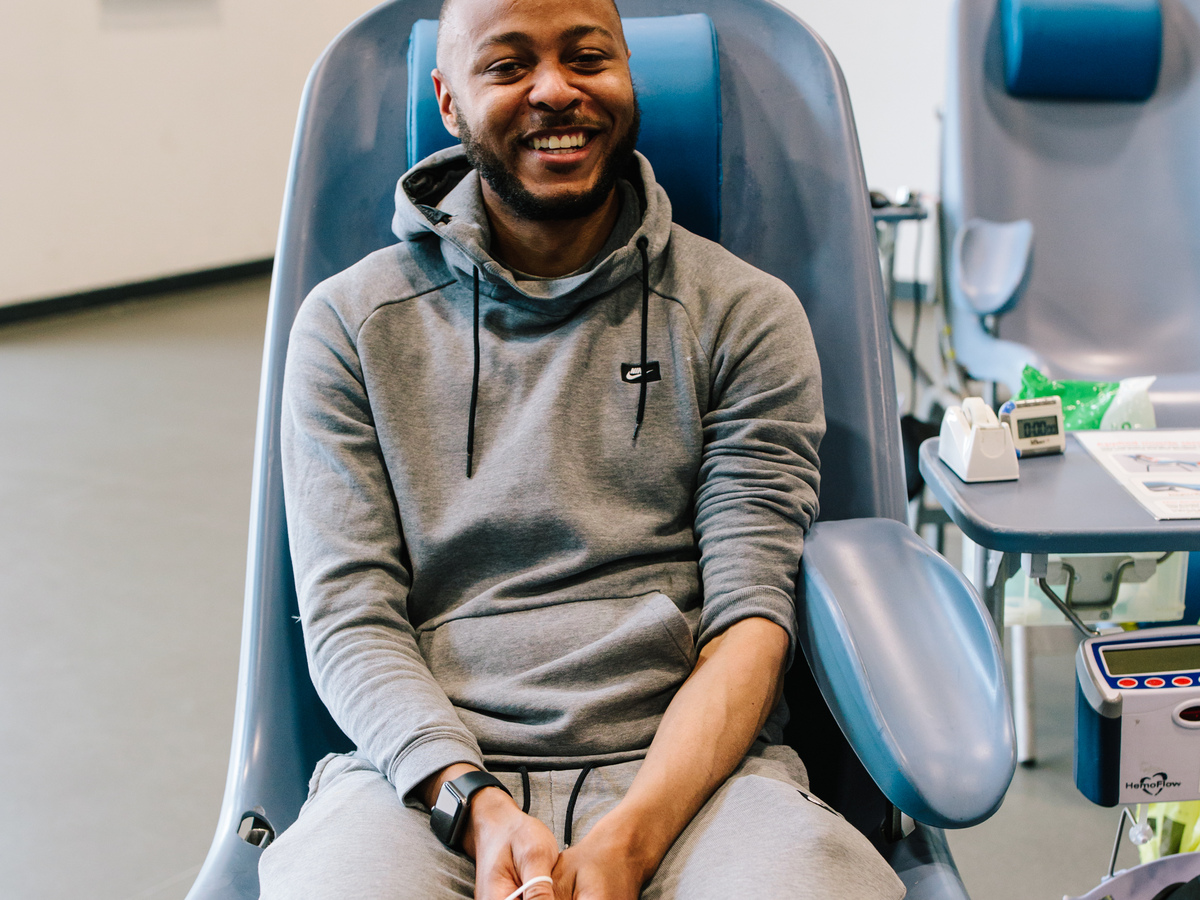Saving lives this spring
With bank holidays and school breaks, April and May are traditionally difficult months to keep a steady supply of blood products to hospitals maintained.
Longer, brighter days, warmer weather and the sight of bees and flowers after a lengthy winter are all things that many of us welcome. But with bank holidays and school breaks, April and May are traditionally difficult months to keep a steady supply of blood products to hospitals maintained.
Blood products only last a short time, so it is important that donations continue all year round to maintain healthy levels.
Please book your appointment now
If you are eligible to donate blood, platelets, or plasma in the coming weeks, please consider booking an appointment for this busy period to help provide the NHS with what it needs to continue saving and improving people’s lives.
If you do already have an appointment, please make sure to prepare for your donation fully, or if you can’t attend, please let us know as soon as possible, so that the appointment can be made available again.
Save even more lives
More donations of platelets are needed, particularly from donors with A negative, AB negative and A positive blood types.
Donating platelets means you can save even more lives: each donation can save the lives of up to three adults or twelve children. Nearly 70 per cent of donated platelets are used to treat people with cancer.

If you already give blood, all you need to do to switch to platelets is to provide a sample alongside your next donation. Simply tell staff at the donation session before you give blood that you wish to provide a sample of platelets.
Find out more about platelet donation, including the sample.
Plasma for medicines
Since 2021, donors from the UK have been allowed to donate plasma for use in life-saving treatments. Medicines made from plasma save and transform the lives of over 17,000 people in England each year.
Plasma makes up approximately 55 per cent of your blood, and contains antibodies, known as immunoglobulins, which fight infection.
These antibodies are made into medicines to help people with cancers, rare diseases and immune disorders. Over 50 different conditions are treated with these medicines.
Plasma donations are currently given at our centres in Birmingham, Reading and Twickenham.

Stem cells
Stem cells save the lives of people with blood cancers and other diseases, but 70 per cent of people must rely on a matched volunteer donor – someone outside of their family.
More stem cell donors are needed from a range of ethnic backgrounds. White patients are able to find the best possible match in 70 per cent of cases, but this drops as low as 20 per cent for people of other ethnic backgrounds.
Currently, NHS Blood and Transplant is looking for stem cell donors who are aged between 17 and 40 years old and either men from any ethnic background or women from Black, Asian, minority ethnic, or mixed backgrounds.
To join the register, simply speak to the staff when you next give blood.
Click here to find out more about stem cells.
A life-saving conversation
Almost 10,000 people are waiting for a transplant in the UK.
One donor can save or transform up to nine lives through organ donation and help even more by donating tissue.
Although the law around organ donation has changed to an opt out system in many parts of the UK, your family will still be consulted if organ donation is a possibility. Each year, hundreds of opportunities for transplants are missed because families aren't sure what to do.
You can save lives by having a conversation with your family to communicate your wishes. Your family will always be consulted about whether you wanted to be an organ donor or not, and clinicians will never proceed with organ donation if your family or loved ones object.
Some organs, such as liver and kidney, can be given as a living donation. Find out more about how you can become a living donor.
Book your appointment online
Book now
Could you donate platelets?
Right now, we need people with A negative, AB negative and A positive blood types to step forward and donate platelets to help people with cancer.

Donating plasma
Plasma is made into medicines that save and improve the lives of thousands of people with rare diseases.
